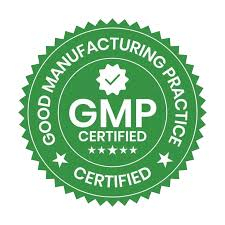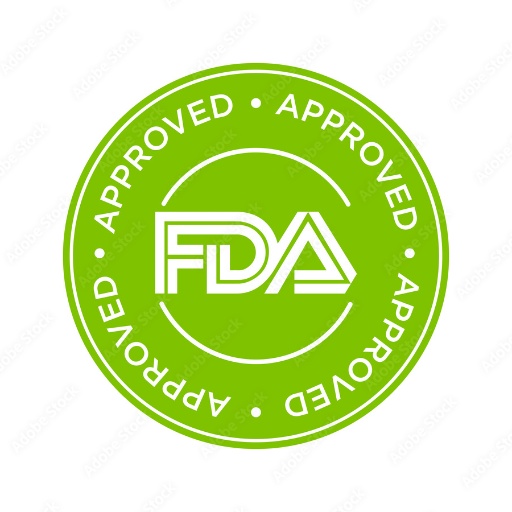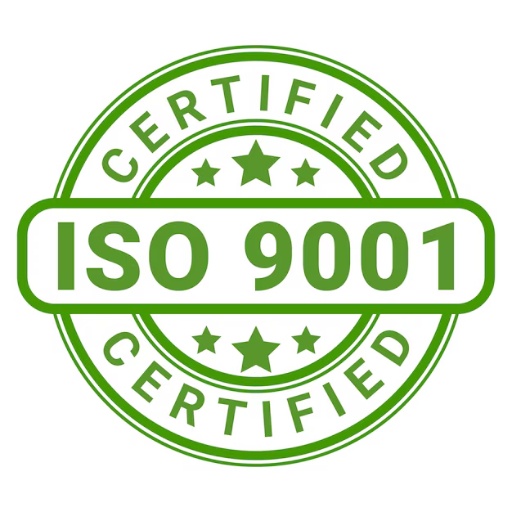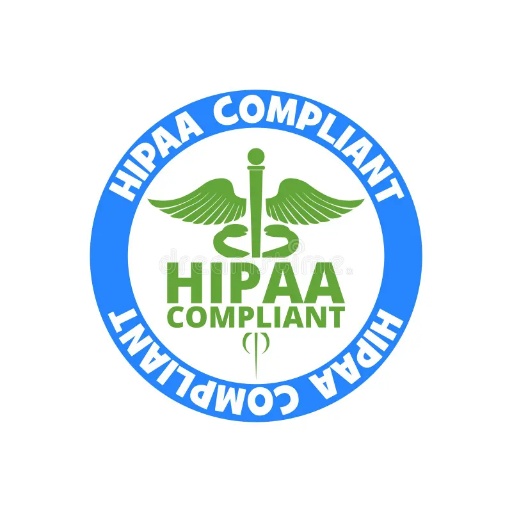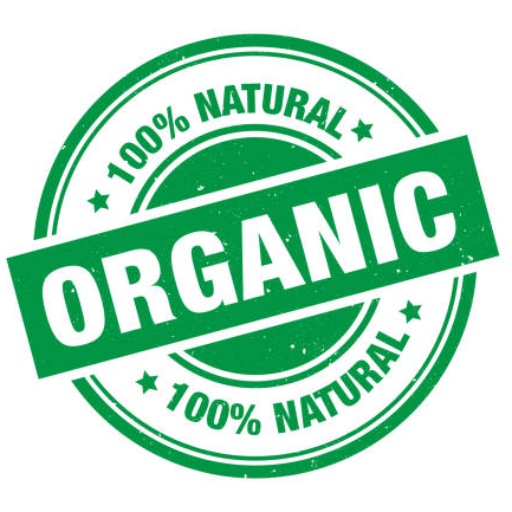Blog
Signs Your Body Is Deficient in Vitamins & What To Do

Your body needs vitamins and minerals to work properly. When you don’t get enough of these important nutrients, your body sends signals asking for help. As a nutritionist with over 15 years of experience helping people fix their vitamin levels, I’ve seen firsthand how common these problems are and how much better people feel when they fix them.
In this article, I’ll share the most common signs of vitamin deficiencies, which foods can help, and when you might need supplements. You’ll learn what I tell my patients about spotting problems early and solving them in simple, practical ways.
Let’s look at how your body tells you it needs more vitamins and what you can do to help.
Why Vitamin Deficiencies Happen
Before we talk about the signs, let’s understand why vitamin deficiencies happen in the first place.
The main reasons include:
- Not eating enough variety of foods – Eating the same things every day might mean you miss certain vitamins
- Poor food quality – Modern farming methods sometimes make fruits and vegetables less nutritious than they used to be
- Digestive problems – Some people can’t absorb vitamins well because of stomach or intestine issues
- Medications – Some medicines make it harder for your body to use certain vitamins
- Higher needs – Some people need more vitamins because they’re growing, pregnant, sick, or very active
- Age – As we get older, our bodies often absorb fewer vitamins from food
In my practice, most people with vitamin deficiencies simply aren’t eating enough different kinds of whole foods. One of my patients, asifa, thought she was eating healthy with her daily salads, but she always used the same few vegetables. Once she added more variety, many of her deficiency symptoms went away.
Common Signs of Vitamin Deficiencies
Let’s look at the most common warning signs your body might show when it needs more vitamins. Remember, many of these signs can also happen for other reasons, so it’s always good to talk to a doctor if you’re worried.
1. Feeling Very Tired All the Time
If you’re always tired, even when you get enough sleep, your body might need more:
- Iron – Helps carry oxygen in your blood
- B vitamins – Help your body make energy from food
- Vitamin D – Helps with energy and mood
I remember working with Tom, a college student who could barely stay awake during classes despite sleeping 8 hours every night. His blood tests showed very low vitamin B12 and iron. After improving his diet and taking supplements for a short time, his energy returned completely.
What it might feel like:
- Tired even after a full night’s sleep
- Need to take naps during the day
- Feel weak when doing normal activities
- Hard to concentrate or think clearly
2. Hair Loss or Brittle Hair
Your hair needs vitamins to stay strong and healthy. Hair problems might signal low levels of:
- Biotin (B7) – Keeps hair strong
- Iron – Helps hair grow properly
- Zinc – Important for hair tissue growth and repair
- Vitamin D – Helps create new hair follicles
I once worked with an actress who was losing alarming amounts of hair before shooting a movie. We discovered she had very low iron and biotin levels from her restricted diet. After three months of correcting these deficiencies, her hair stopped falling out and started growing thicker again.
What it might look like:
- More hair than usual in your brush or shower drain
- Hair that breaks easily
- Thinning hair
- Dull-looking hair
3. Cracked Corners of Your Mouth
Those painful cracks at the corners of your mouth (doctors call them “angular cheilitis”) often signal that you need more:
- B vitamins – Especially riboflavin (B2), niacin (B3), and B6
- Iron – Works with B vitamins for healthy skin
- Zinc – Helps heal skin quickly
In my clinic, I see this problem often in college students during exam periods when they’re eating poorly and under stress. Adding B-vitamin-rich foods usually helps clear it up within a week or two.
What it might feel like:
- Painful cracks or splits at the corners of your lips
- Redness around the edges of your mouth
- Sores that don’t heal quickly
4. Bumpy Skin on Arms and Legs
Those small, rough bumps on the backs of arms and thighs (called “keratosis pilaris”) often mean you need more:
- Vitamin A – Helps skin cells grow properly
- Essential fatty acids – Keep skin smooth and moisturized
This is an interesting one from my practice. Many parents bring their children worried about these bumps. When we add more vitamin A-rich foods and healthy fats to their diets, the bumps often improve within a few months.
What it might look like:
- Small, painless bumps that feel rough like sandpaper
- Usually on the backs of upper arms, thighs, or buttocks
- It might look red or skin-colored
- Worse in dry weather or winter
5. Bleeding Gums
If your gums bleed easily when brushing your teeth, you might need more:
- Vitamin C – Keeps gum tissue strong and healthy
- Vitamin K – Helps blood clot normally
I had a patient who was a chef and ate a varied diet but still had bleeding gums. We discovered he was overcooking all his vegetables, destroying most of the vitamin C. When he started including some raw vegetables and properly cooked ones, his gum problems improved dramatically.
What it might look like:
- Blood on your toothbrush after brushing
- Pink or red-tinged water when you rinse your mouth
- Gums that look red instead of pink
- Tender or swollen gums
6. Slow-Healing Wounds
If cuts and scrapes take a long time to heal, your body might need more:
- Vitamin C – Helps form new skin tissue
- Zinc – Important for cell growth and immune function
- Protein – Provides building blocks for new tissue
Working with elderly patients has shown me how common this problem is. One gentleman had a small cut that wouldn’t heal for weeks. Adding zinc-rich foods and more protein to his meals helped his wound heal completely within 10 days.
What it might look like:
- Cuts and scrapes that stay open longer than usual
- Wounds that don’t shrink or improve after several days
- Infections that develop in simple cuts
7. Bone and Joint Pain
Ongoing pain in your bones and joints might mean you need more:
- Vitamin D – Helps your body use calcium for bone health
- Calcium – The main mineral in your bones
- Magnesium – Works with vitamin D and calcium
I see this often in people who avoid the sun and dairy products. One of my patients, a computer programmer who worked nights and slept days, had severe knee pain despite being young and healthy. His vitamin D level was one of the lowest I’ve ever seen. With vitamin D supplements and lifestyle changes, his pain disappeared completely.
What it might feel like:
- Dull, persistent aches in bones or joints
- Muscle weakness around bones
- Lower back pain that doesn’t go away
- Pain that gets worse with pressure
8. Night Blindness
If you have trouble seeing in dim light or at night, you might need more:
- Vitamin A – Critical for the eyes to adapt to darkness
This isn’t common in developed countries, but it does happen. I once worked with a patient who had moved to the US from a region with widespread vitamin A deficiency. Her night vision was so poor she couldn’t drive after sunset. After three months of proper nutrition focusing on vitamin A, she could see well enough to drive at night safely.
What it might feel like:
- Difficulty seeing in restaurants or movie theaters
- Problems driving at night
- Taking longer to adjust when moving from bright to dim areas
- Need for brighter light when reading
9. Numbness or Tingling in Hands and Feet
This sensation (called “peripheral neuropathy”) is often linked to low levels of:
- B vitamins – Especially B12, B6, and folate
- Vitamin E – Protects nerve cells
Many of my vegetarian and vegan patients experience this problem due to B12 deficiency. One vegan athlete came to me with such severe tingling in his feet that it disrupted his training. After adding B12 supplements, his symptoms improved within weeks.
What it might feel like:
- “Pins and needles” sensation
- Burning feeling in hands or feet
- Numbness or reduced feeling
- Sensitivity to touch
10. Getting Sick Often
If you catch every cold and flu going around, you might need more:
- Vitamin C – Supports immune system function
- Vitamin D – Helps immune cells work properly
- Zinc – Critical for immune response
- Vitamin A – Keeps skin and mucous membranes healthy
I work with many teachers who come to me because they catch everything their students bring to school. When we improve their vitamin D and zinc levels, many report getting sick much less often.
What it might look like:
- More than 3-4 colds per year
- Infections that last longer than they should
- Taking longer to recover from illnesses
- Frequent mouth sores or cold sores
11. Depression and Mood Problems
Feeling low or having mood swings can be connected to low levels of:
- Vitamin D – Affects brain chemicals related to mood
- B vitamins – Especially B12 and folate
- Magnesium – Helps regulate stress hormones
- Omega-3 fatty acids – Important for brain health
This connection is powerful. I’ve worked with many patients dealing with depression who saw significant improvements when we corrected their vitamin D and B vitamin levels. One memorable case was a woman who’d tried several antidepressants with little effect. Adding vitamin D and B complex supplements alongside her medication created a breakthrough in her mood within weeks.
What it might feel like:
- Persistent sadness or low mood
- Loss of interest in things you usually enjoy
- Feeling irritable or anxious
- Low energy or motivation
12. Dry, Scaly Skin
If your skin is consistently dry and flaky despite moisturizing, you might need more:
- Vitamin E – Protects skin cells from damage
- Vitamin A – Helps skin cells grow properly
- Omega-3 fatty acids – Keep skin cell membranes healthy
This is extremely common in my practice, especially during winter months. Adding foods rich in these nutrients often improves skin texture within 3-4 weeks.
What it might look like:
- Skin that feels tight or rough
- Flaking or peeling skin
- Skin that stays dry even with lotion
- Dull-looking skin
Vitamin-by-Vitamin Guide to Deficiency Signs
Now, let’s look at each important vitamin and the signs your body might show when you don’t have enough.
Vitamin A
Common deficiency signs:
- Night blindness or trouble seeing in dim light
- Dry, bumpy skin (especially on arms and legs)
- Frequent throat and chest infections
- Slow wound healing
- Poor sense of taste
Best food sources:
- Liver
- Sweet potatoes
- Carrots
- Spinach
- Kale
- Red bell peppers
- Eggs
Expert tip: Your body absorbs vitamin A better when you eat it with healthy fats. Try cooking carrots in a little olive oil or adding avocado to your spinach salad.
B Vitamins
B vitamins work as a family, so their deficiency signs often overlap. Here are the most important ones:
Vitamin B12
Common deficiency signs:
- Extreme fatigue
- Numbness and tingling in hands and feet
- Memory problems
- Mood changes
- Smooth, red tongue
- Anemia
Best food sources:
- Meat, especially liver
- Fish and shellfish
- Eggs
- Dairy products
- Nutritional yeast
- Fortified plant pints of milk and cereals
Expert tip: B12 is only naturally found in animal products. If you’re vegetarian or vegan, you should take a B12 supplement or eat B12-fortified foods regularly.
Folate (B9)
Common deficiency signs:
- Fatigue
- Gray hair
- Mouth sores
- Poor growth
- Tongue swelling
- Shortness of breath
Best food sources:
- Dark leafy greens
- Beans and lentils
- Asparagus
- Brussels sprouts
- Avocados
- Citrus fruits
Expert tip: Folate is sensitive to heat, so try to include some raw folate-rich foods in your diet.
Other B Vitamins
Common deficiency signs:
- Cracks at corners of mouth (riboflavin)
- Skin rashes (niacin)
- Hair loss (biotin)
- Anemia (B6)
- Muscle cramps (pantothenic acid)
Best food sources for B vitamins generally:
- Whole grains
- Meat
- Eggs
- Legumes
- Seeds and nuts
- Dark leafy vegetables
Expert tip: Many B vitamins work together, so eating a variety of B-vitamin foods works better than focusing on just one.
Vitamin C
Common deficiency signs:
- Bleeding gums
- Easy bruising
- Slow wound healing
- Rough, bumpy skin
- Frequent infections
- Joint pain
Best food sources:
- Citrus fruits
- Bell peppers
- Strawberries
- Kiwi fruit
- Broccoli
- Tomatoes
- Potatoes
Expert tip: Vitamin C is destroyed by heat and light. Try to eat some raw fruits and vegetables daily, and cut them just before eating for maximum vitamin C.
Vitamin D
Common deficiency signs:
- Bone pain
- Muscle weakness
- Depression or mood changes
- Fatigue
- Frequent infections
- Hair loss
Best food sources:
- Fatty fish (salmon, mackerel)
- Egg yolks
- Liver
- Fortified milk and plant milk
- Fortified cereals
- Mushrooms exposed to sunlight
Expert tip: Your body makes vitamin D when your skin is exposed to sunlight. In my practice, I recommend 10-15 minutes of sun exposure on arms and legs a few times per week during the summer months. In winter or for those who can’t get sun exposure, supplements are often necessary.
Vitamin E
Common deficiency signs:
- Muscle weakness
- Poor coordination
- Vision problems
- Weakened immune system
- Red blood cell damage
- Dry skin and hair
Best food sources:
- Nuts and seeds, especially sunflower seeds and almonds
- Vegetable oils
- Avocados
- Spinach
- Butternut squash
- Kiwi fruit
Expert tip: Vitamin E is better absorbed when eaten with some fat, so pairing vitamin E foods with a healthy fat source improves absorption.
Vitamin K
Common deficiency signs:
- Easy bruising
- Bleeding gums
- Heavy menstrual periods
- Blood in urine or stool
- Excessive bleeding from cuts
Best food sources:
- Dark leafy greens (kale, spinach, collards)
- Brussels sprouts
- Broccoli
- Cabbage
- Fermented foods like natto
- Liver
Expert tip: Unlike many vitamins, vitamin K is not easily destroyed by heat, so cooked greens are still excellent sources.
Mineral Deficiency Signs
Minerals work alongside vitamins to keep your body healthy. Here are key minerals and signs you might need more of them:
Iron
Common deficiency signs:
- Extreme fatigue
- Pale skin
- Shortness of breath
- Headaches
- Dizziness
- Cold hands and feet
- Brittle nails
- Fast heartbeat
Best food sources:
- Red meat
- Organ meats
- Seafood
- Beans and lentils
- Dark leafy greens
- Dried fruit
- Fortified cereals
Expert tip: Vitamin C helps your body absorb iron from plant sources. Try eating iron-rich plants with vitamin C foods, like spinach with bell peppers or beans with tomatoes.
Calcium
Common deficiency signs:
- Muscle cramps
- Numbness and tingling in fingers
- Abnormal heart rhythms
- Brittle nails
- Dental problems
- Bone fractures
Best food sources:
- Dairy products
- Fortified plant milks
- Small fish eaten with bones (sardines, canned salmon)
- Dark leafy greens
- Almonds
- Tofu made with calcium
- Figs
Expert tip: Your body needs vitamin D to properly use calcium, so make sure you’re getting enough of both nutrients.
Magnesium
Common deficiency signs:
- Muscle cramps and twitches
- Fatigue
- Mental fog
- Anxiety
- Trouble sleeping
- Irregular heartbeat
- Low appetite
Best food sources:
- Dark leafy greens
- Nuts and seeds
- Beans
- Whole grains
- Avocados
- Dark chocolate
- Bananas
Expert tip: Magnesium is lost during food processing, so choosing whole, unprocessed foods is important for getting enough magnesium.
Zinc
Common deficiency signs:
- Slow wound healing
- Hair loss
- Diarrhea
- Loss of appetite
- Reduced sense of taste and smell
- White spots on fingernails
- Frequent infections
Best food sources:
- Oysters and shellfish
- Red meat
- Poultry
- Beans and lentils
- Nuts and seeds
- Whole grains
- Dairy products
Expert tip: Zinc from animal sources is more easily absorbed than zinc from plant sources. If you’re vegetarian or vegan, you might need more zinc.
Selenium
Common deficiency signs:
- Weakened immune system
- Thyroid problems
- Mental fog
- Fatigue
- Hair loss
- Weak and brittle nails
Best food sources:
- Brazil nuts (just 1-2 per day provides enough)
- Seafood
- Organ meats
- Eggs
- Turkey and chicken
- Sunflower seeds
- Whole grains
Expert tip: Selenium content in food varies based on the selenium content of the soil where plants were grown or animals were raised.
Potassium
Common deficiency signs:
- Muscle weakness and cramps
- Fatigue
- Constipation
- Irregular heartbeat
- Tingling and numbness
- Increased blood pressure
Best food sources:
- Bananas
- Potatoes
- Leafy greens
- Beans
- Squash
- Oranges and orange juice
- Avocados
- Yogurt
Expert tip: Most fruits and vegetables contain potassium, so eating a variety of produce is the best way to get enough.
Special Groups at Risk for Vitamin Deficiencies
Some people are more likely to develop vitamin deficiencies than others. If you’re in one of these groups, pay extra attention to your nutrition:
Older Adults
As we age, our bodies often absorb fewer nutrients from food. Plus, many older adults:
- Eat less food overall
- May have reduced appetite
- Might take medications that affect nutrient absorption
- May have difficulty shopping for or preparing healthy meals
Most common deficiencies: Vitamin B12, vitamin D, calcium, and protein
Expert tip for seniors: Consider a good quality multivitamin designed for older adults, and pay special attention to getting enough protein at each meal.
Pregnant Women
Pregnancy increases your need for almost all nutrients. Your baby takes what it needs from your body, which can leave you deficient if you don’t get enough.
Most common deficiencies: Folate, iron, vitamin D, calcium, omega-3 fatty acids
Expert tip for pregnant women: Prenatal vitamins are important, but so is eating nutrient-dense foods. Focus on quality protein, plenty of colorful vegetables and fruits, healthy fats, and whole grains.
Vegetarians and Vegans
Plant-based diets can be very healthy, but without careful planning, they can lead to certain deficiencies.
Most common deficiencies: Vitamin B12, iron, zinc, calcium, vitamin D, omega-3 fatty acids
Expert tip for plant-based eaters: B12 supplements are essential for vegans. Also, include plenty of legumes, nuts, seeds, and fortified foods in your diet.
People with Digestive Disorders
Conditions like celiac disease, Crohn’s disease, ulcerative colitis, and IBS can reduce nutrient absorption.
Most common deficiencies: B vitamins, iron, calcium, vitamin D, zinc, magnesium
Expert tip for digestive issues: Work with a healthcare provider to determine which supplements you need based on your specific condition and symptoms.
Heavy Alcohol Drinkers
Alcohol interferes with nutrient absorption and increases nutrient loss through urine.
Most common deficiencies: B vitamins (especially thiamin), folate, zinc, vitamin A, calcium
Expert tip: If you drink regularly, eat extra nutrient-dense foods and consider a B-complex supplement.
How to Test for Vitamin Deficiencies
If you suspect you have a vitamin deficiency, here’s how to find out for sure:
See Your Doctor
Your primary care doctor can:
- Review your symptoms
- Order appropriate blood tests
- Rule out other causes of your symptoms
- Provide treatment recommendations
For accurate results, most vitamin tests should be done when you’re fasting (haven’t eaten for 8-12 hours).
Common Tests for Vitamin Levels
- Complete Blood Count (CBC) – Can show signs of anemia related to iron, B12, or folate deficiency
- Vitamin D test – Measures 25-hydroxyvitamin D levels in your blood
- Vitamin B12 test – Checks B12 levels
- Ferritin test – Shows your iron storage levels
- Comprehensive metabolic panel – Includes calcium, magnesium, and other minerals
My clinical experience: I always recommend testing before starting supplements for suspected deficiencies. I’ve seen patients who thought they needed iron but actually had vitamin D deficiency with similar symptoms. Testing prevents wrong treatments.
At-Home Testing Options
Several companies now offer at-home vitamin testing through finger-prick blood samples or other methods. These can be convenient but have limitations:
Pros:
- Convenient; no doctor visit is needed
- Often less expensive than lab work
- Results are typically available online
- May test multiple vitamins at once
Cons:
- It may be less accurate than lab tests
- Results may be harder to interpret without medical guidance
- Insurance usually doesn’t cover them
- Some important tests aren’t available at home
Expert opinion: In my practice, traditional lab work ordered by a doctor is still the most reliable way to test for vitamin deficiencies. However, at-home tests can be a good starting point if you can’t see a doctor right away.
How to Fix Vitamin Deficiencies
Once you know which vitamins you’re low in, here’s how to boost your levels:
Food First Approach
For most vitamin deficiencies, changing your diet is the best long-term solution:
- Identify foods rich in your deficient vitamins
- Add these foods to your daily meals
- Prepare foods to maximize nutrition (like eating vitamin C foods raw)
- Pair foods for better absorption (like iron foods with vitamin C)
Real patient example: My patient Michael had low zinc levels causing slow wound healing. Rather than immediately taking supplements, we added oysters to his diet twice weekly, plus daily pumpkin seeds and beef. Within two months, his zinc levels normalized and stayed that way without supplements.
When to Consider Supplements
Sometimes diet changes aren’t enough, especially for:
- Severe deficiencies
- People with absorption problems
- Those with higher nutrient needs
- Certain life stages (pregnancy, old age)
- Restricted diets
Tips for choosing quality supplements:
- Look for third-party testing (USP, NSF, or ConsumerLab verification)
- Choose forms your body absorbs well (like methylcobalamin for B12)
- Avoid unnecessary additives and fillers
- Consider liquid or chewable forms if you have digestive issues
- Don’t exceed recommended dosages without medical advice
Expert tip: Don’t assume more is better with supplements. For fat-soluble vitamins (A, D, E, K), taking too much can be harmful. Water-soluble vitamins (B, C) are safer in higher doses but can still cause problems.
Lifestyle Changes That Help
Beyond diet and supplements, other changes can improve your vitamin levels:
- Get moderate sun exposure for vitamin D (about 10-15 minutes a few times weekly)
- Reduce alcohol consumption to improve B vitamin levels
- Manage stress, which depletes several vitamins
- Fix sleep problems that affect nutrient absorption
- Address digestive issues that might prevent proper absorption
Personal anecdote: I struggled with low vitamin D despite supplements until I made a point to walk outside during lunch breaks. That simple habit improved my levels more than the supplements alone.
How Long It Takes to Fix Deficiencies
Patients always want to know how quickly they’ll feel better. Here’s what I tell them:
Timeline for Improvement
| Vitamin/Mineral | Mild Deficiency | Severe Deficiency | First Signs of Improvement |
|---|---|---|---|
| Iron | 1–2 months | 3–6 months | More energy in 2–3 weeks |
| Vitamin D | 2–3 months | 6+ months | Mood improvement in 4–6 weeks |
| Vitamin B12 | 1–3 months | 6–12 months | Energy boost in 1–2 weeks |
| Zinc | 2–4 weeks | 2–3 months | Improved immunity in 1–2 weeks |
| Magnesium | 1–2 weeks | 1–2 months | Better sleep in days to weeks |
From my practice, I’ve noticed that certain symptoms improve faster than others. For example, with vitamin D supplementation, mood often improves before bone pain does. With iron, heart palpitations may get better before fatigue fully resolves.
Follow-Up Testing
To know if your treatment is working:
- Retest severe deficiencies after 3 months
- Retest mild deficiencies after 6 months
- Continue treatment until levels reach optimal range (not just minimum)
- Test annually once levels normalize
Preventing Vitamin Deficiencies
The best approach is preventing deficiencies before they start:
Dietary Strategies
- Eat the rainbow – Different colored fruits and vegetables provide different vitamins
- Include all food groups if your diet allows
- Limit processed foods, which are often low in nutrients
- Rotate foods rather than eating the same things daily
- Use proper cooking methods to preserve vitamins
- Plan meals to ensure nutrient variety
Expert tip: I recommend my patients aim for at least 30 different whole foods each week. This simple goal naturally increases vitamin variety.
Supplement Strategies
For some people, a basic supplement regimen may prevent deficiencies:
- Daily multivitamin – Choose one appropriate for your age and sex
- Vitamin D – Especially in winter or if you have limited sun exposure
- Specific supplements based on your risk factors and diet
My approach: I prefer targeted supplementation based on testing rather than taking many supplements “just in case.” However, vitamin D is one I often recommend preventively, especially in northern climates.
Special Considerations for Different Ages
Children
- Focus on nutrient-dense foods during growth spurts
- Be aware that picky eating phases can lead to deficiencies
- Consider children’s multivitamins for very selective eaters
Young Adults
- Pay attention to iron needs, especially for menstruating women
- Don’t skip meals during busy times
- Balance alcohol consumption with extra nutrients
Middle Age
- Be aware that nutrient needs change as metabolism shifts
- Get baseline vitamin testing as part of regular check-ups
- Don’t follow extreme diets without professional guidance
Seniors
- Increase protein and calcium for muscle and bone health
- Consider B12 supplementation after age 60
- Get vitamin D levels checked annually
Common Questions About Vitamin Deficiencies
Here are the questions I hear most often in my practice:
“Can I just take a multivitamin and be covered?”
A multivitamin can help fill small nutritional gaps, but:
- It won’t correct serious deficiencies
- It can’t replace nutrient-rich foods
- It may not contain enough of your specific deficient nutrients
- Some vitamins in multivitamins aren’t well absorbed
For mild protection against deficiencies, a good quality multivitamin is helpful. For treating actual deficiencies, targeted supplements are usually needed.
“Are natural vitamins better than synthetic ones?”
This depends on the specific vitamin:
- Some natural forms are better absorbed (like natural vitamin E)
- Some synthetic forms are actually better utilized (like folic acid)
- Many “natural” supplements still contain synthetic ingredients
- Price doesn’t always indicate quality
Focus more on the form of the vitamin and whether it’s well-absorbed rather than whether it’s labeled “natural.”
“Can I take too many vitamins?”
Yes, absolutely. This is especially true for:
- Fat-soluble vitamins (A, D, E, K) which your body stores
- Some minerals like iron and zinc
- Any supplement taken in very high doses
Symptoms of vitamin toxicity can include:
- Nausea and vomiting
- Headaches
- Liver damage
- Nerve problems
- Kidney stones
- Congenital disabilities (if pregnant)
Always follow recommended dosages and consult a healthcare provider before taking high doses.
“Why do I still have symptoms if my blood tests are normal?”
This happens for several reasons:
- Standard lab ranges are wide and may not represent optimal levels
- You might need higher levels for your body
- You could have absorption issues not shown on standard tests
- Your symptoms might be caused by something else entirely
Working with a healthcare provider who looks at your whole health picture, not just lab values, is important in these cases.
“Do vitamin needs change with the seasons?”
Yes, they often do:
- Vitamin D needs to increase in winter with less sun exposure
- Vitamin C and zinc needs may increase during cold and flu season
- Hydration and electrolytes need to change in hot weather
- Seasonal foods provide different nutrient profiles
I recommend seasonal adjustments to both diet and supplements for many patients.
Advanced Topic: Nutrient Interactions
This is something many articles don’t cover, but as an expert, I know how important it is. Vitamins and minerals work together, and taking or eating too much of one can affect others.
Important interactions to know:
Helpful Pairs (Take Together)
- Vitamin D and Calcium – Vitamin D helps calcium absorption
- Vitamin C and Iron – Vitamin C increases iron absorption from plant foods
- B vitamins – B vitamins work best when taken together as a complex
- Vitamin E and Selenium – Work together as antioxidants
- Vitamin K and Vitamin D – Partner for proper calcium utilization
Competing Pairs (Space These Apart)
- Zinc and Iron – Can compete for absorption
- Calcium and Iron – Calcium can block iron absorption
- Calcium and Magnesium – Can compete when taken in high doses
- Copper and Zinc – Taking too much zinc can lower copper levels
One patient, Michael, was taking iron supplements for anemia but wasn’t improving. We discovered he was taking them with his calcium supplement. Simply spacing these 2-3 hours apart led to much better results.
Final Thoughts
Paying attention to vitamin levels is one of the simplest yet most powerful things you can do for your health. Many common health complaints—from fatigue to mood problems to skin issues—can be improved by addressing underlying vitamin deficiencies.
My best advice is to:
- Eat a varied diet with plenty of whole foods
- Know your risk factors for specific deficiencies
- Get tested if you have persistent symptoms
- Work with healthcare providers to address deficiencies properly
Remember that good nutrition is personalized. What works for someone else might not be right for your unique body and lifestyle. Listen to your body’s signals, get proper testing, and make changes that you can maintain long-term.
With the right approach, you can ensure your body has all the vitamins and minerals it needs to help you feel your best every day.

